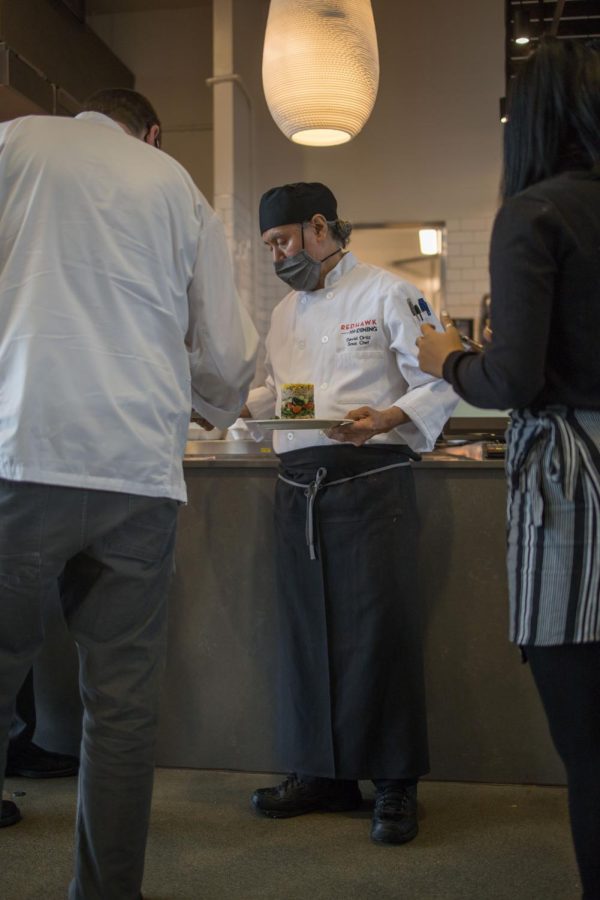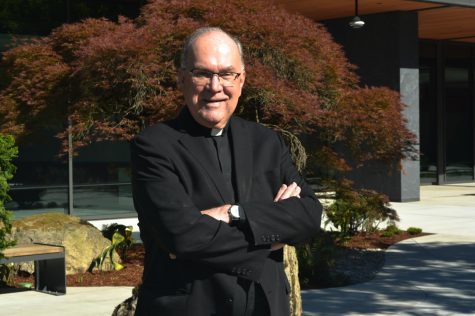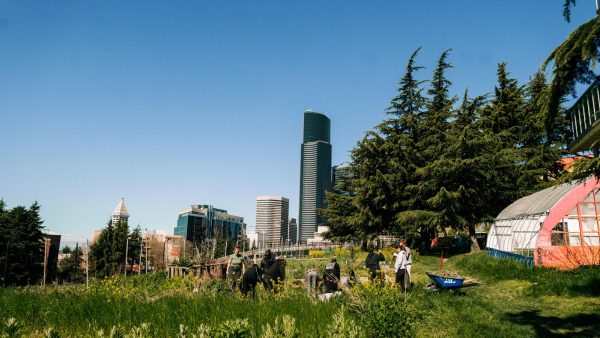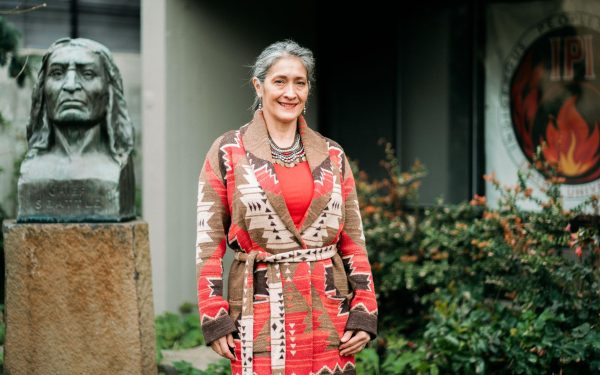2nd Annual Food Justice Week brings Seattle U Community into the Conversation
Sous Chef David Ortiz’s tuna salad
Last week, Seattle University held its second annual Food Justice Week, an initiative led by the Office of Multicultural Affairs (OMA) in collaboration with other campus organizations to examine and explore the relationship between food and justice.
From Oct. 25 to 29, the Seattle U community was invited to attend engagement events, ranging from a competitive cook-off to panel discussions on food justice to conversations about how one can be actively involved in creating an equitable and sustainable future.
Seattle U’s mission statement outlines that the university “is dedicated to educating the whole person, to professional formation and to empowering leaders for a just and humane world.”
Yolona Cieters, the sustainability manager at the Center for Environmental Justice and Sustainability (CEJS), spoke on the connection between the mission and food justice.
“Food justice, in my opinion, is about access and the rights to affordable, nutritious, healthy, sustainable and ethically sourced food,” Cieters said. “I believe that this is very much a social justice issue … and something that is part of what we as a mission-driven university … should be looking at—educating our students and our campus community around what food justice is [and] how it is an issue, locally and wider. Involving folks as much as possible in understanding the issue and what can be done about it … is very important.”
Taylor Kaili McKenzie, fourth-year environmental studies and women, gender and sexuality double major, has done extensive work in food justice both at Seattle U and independently, reflected on how food justice is about relationships, whether that be between social justice and agroecology or marginalized communities and food insecurity.
“Something that I find really interesting about food justice is that it’s both this movement that’s advocating for equitable access to food … but it’s also an academic interest that seeks to complicate … traditional discourse around agriculture and the environment demands, ‘hey, you need to incorporate social justice, you need to center especially women and diverse communities that are disproportionately impacted by food insecurity, but are so often kept from the table, from discussions about solutions,’” McKenzie said.
Conversations and solutions were a big part of what Food Justice Week aimed to instigate, with the events of each day providing different perspectives.
The kick-off event took place Oct. 25 and related the barriers to food access to the role that each person plays in the system. On the second day, OMA partnered with Redhawk Dining and had a special appearance from celebrity chef Jet Tila, who shared his story with food security. He spoke about being an immigrant from a Thai family and how their community was impacted in Los Angeles. In addition, the audience got to pick the winning dish in the food pantry cook-off.
OMA hosted a community meal Oct. 27 where resources were shared along with a sign-up for Supplemental Nutrition Assistance Program (SNAP) benefits, which support those who work low-income jobs. The following day, students were able to eat the winning dish from the cook-off and heard from a host of guest speakers. The final day featured a conversation between Seattle U community leaders and students.
Karina Saunders, associate director of OMA and one of the initial organizers of the week, explained why having Food Justice Week is important.
“Food Justice Week particularly came out of a lot of conversations that I had with different clubs, professors and staff on campus who wanted to be involved with the food pantry and food security initiative,” Saunders said. “I think we’re surrounded by wealth and poverty [in Seattle], and what are we doing to break the stigmas of food security, and just making sure that there is access for everyone that needs it? … Maybe students haven’t thought about where their food comes from, or all of the different people that got it to the table.”
Food justice also involves sustainability. Using her earlier definition of the former, Cieters demonstrated the intersectionality between the two.
“[We’re] looking at not just access [to food], but also what we are eating?” Cieters noted. “And how has this been produced? … From a specific climate impact perspective, what we eat has a huge impact on the environment and on our climate, whether it is plant-based food or animal products.”
Cieters particularly explained how the manufacturing of animal products requires vast amounts of agricultural land. This results in a rise of greenhouse gas emissions, which have adverse effects on the climate and health. She goes on to assert that because of the impacts that food production has on the climate, the certification of products and buying conscientiously becomes more important.
Being conscious of where food comes from has received renewed consideration at Seattle U. Recently, Chartwells—Seattle U’s food service company—opened the Convergence Zone Café with all plant-based food options in the new Jim and Janet Sinegal Center for Science and Innovation building.
McKenzie shared her excitement for the new cafe and how it’s a positive step for both students and the university.
“It is so exciting that there is such a beautiful cafe and area where students can get both locally made products, but also plant-based offerings,” McKenzie said. “I think it’s a really great step that SU is taking to encourage students to recognize the voice that they have every time they decide where and what to eat, particularly involving different labor rights and sustainable action that incorporates both social justice and environmental action.”
While this week highlighted food justice at Seattle U, the efforts are ongoing. Cieters notes that OMA and CEJS will touch on the issue more later this year and Saunders urges students to do their research on food security and food justice on sites such as The Hope Center. Food justice occurs every week and is an everyday choice that everyone can be involved in.











